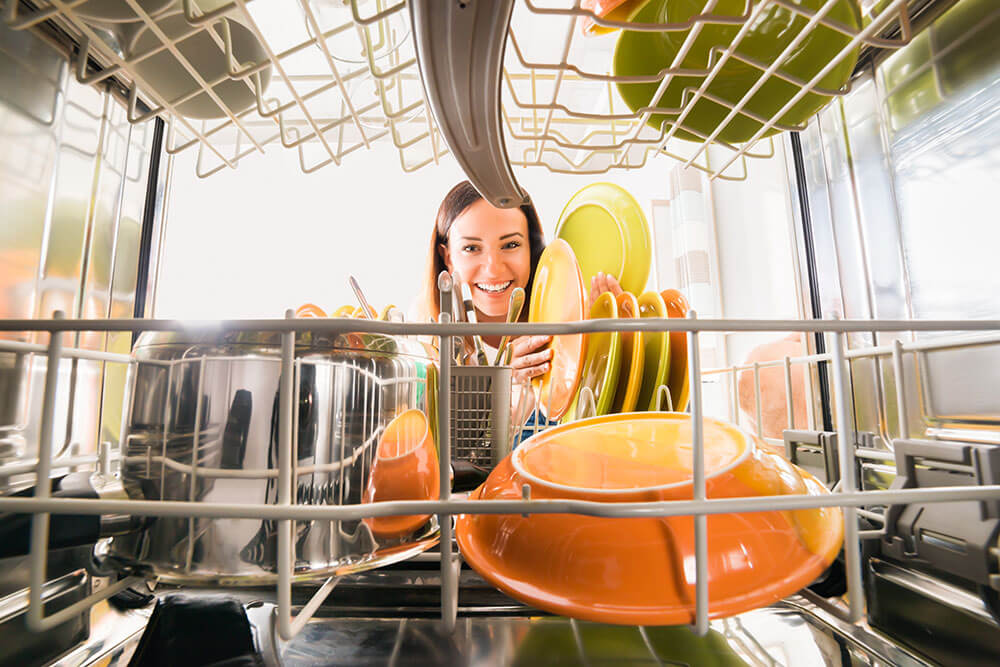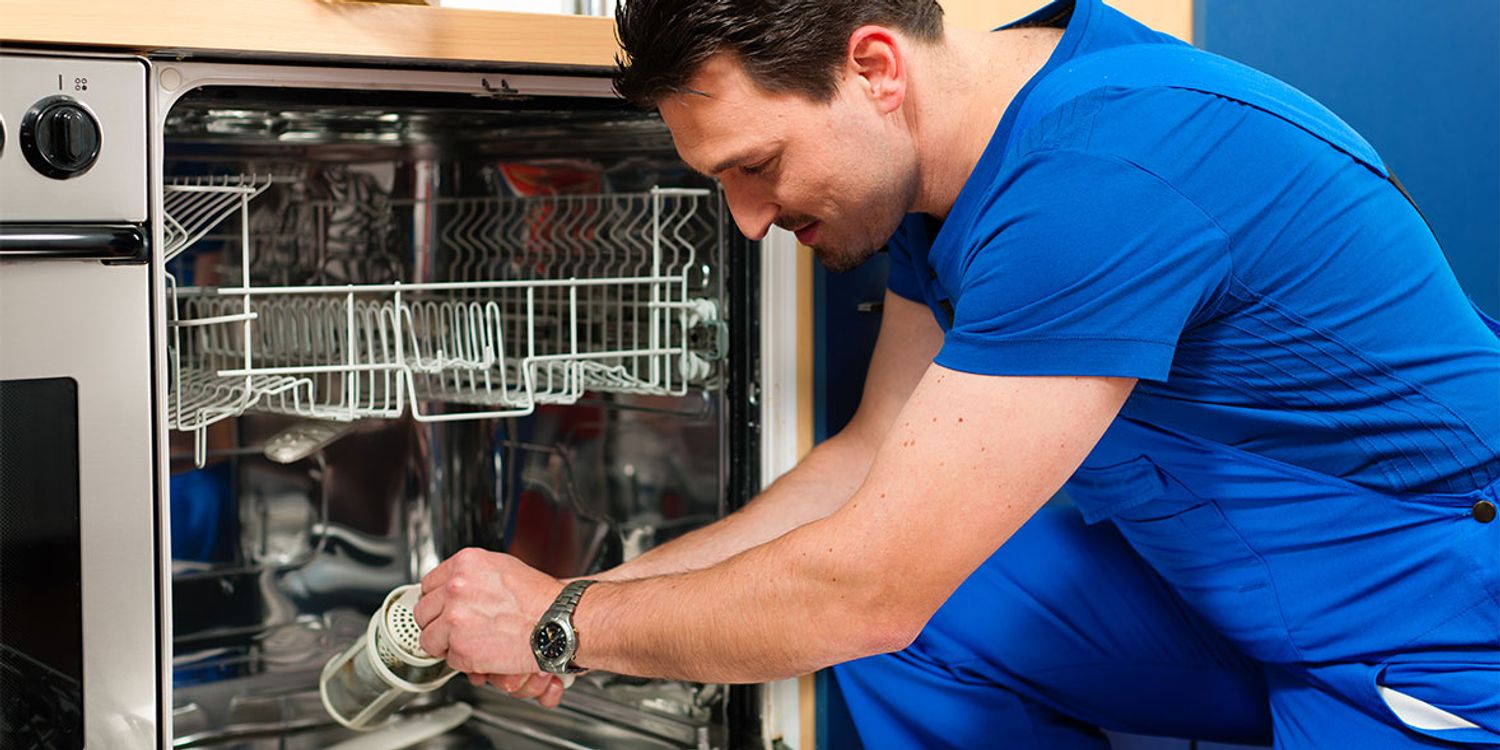One Of The Most Typical Dishwasher Troubles, as well as How to Deal With Them
One Of The Most Typical Dishwasher Troubles, as well as How to Deal With Them
Blog Article
Everybody seems to have their own individual conception in relation to Common Dishwasher Problems.

Having your dishwashing machine malfunction or breakdown can be a big deal and cause some discomfort in the house. Dish washers are machines that we utilize to tidy recipes as well as flatwares instantly to save us the tension of manually doing it.
Like every other device that alleviates human effort, dishwashing machines can break down as well as create some mistake at some time in time. There are numerous mistakes your dishwashing machine might develop, as well as while some of them can be fixed by replacing some parts or repairing them, various other a lot more serious flaws will require that you get a new dishwashing machine.
This short article will determine a few common faults your dishwasher could develop to hinder its general efficiency as well as exactly how these mistakes can be fixed.
Typical Faults
Usual dish washer mistakes can vary from small to significant ones. Depending upon the extent, you will either need the solutions of specialist plumbing professionals to deal with or change it.
A few of the most common faults consist of:
Dripping Dishwashing machine
This is probably the most everyday dish washer trouble, as well as fortunately is that it is easy to identify. Leakages happen because of several factors, as well as the leakages can bungle your kitchen area. Common causes of dish washer leakages include;
Bad-Smelling Dish washer
This is one more usual dishwashing machine trouble, and it is primarily caused by food particles or grease remaining in the equipment. In this case, search for these fragments, take them out and do the meals with no dishes inside the maker. Clean the filter thoroughly. That will aid get rid of the bad odor. Make certain that you remove every food bit from your recipes prior to transferring it to the device in the future.
Lack of ability to Drain
In some cases you might see a large amount of water left in your tub after a laundry. That is most likely a water drainage issue. You can either examine the drain hose pipe for problems or blockages. When unsure, speak to a professional to have it inspected and also fixed.
Does not clean appropriately
If your recipes and also flatwares come out of the dishwasher and still look filthy or unclean, your spray arms might be a trouble. In many cases, the spray arms can get clogged, as well as it will need a fast tidy or a substitute to function properly once more.
Conclusion
Some of these common dishwasher faults can be fixed conveniently in the house, but sometimes, the mistakes could be massive and also may require the attention of experts. If you reside in Rochester, Syracuse, and also various other parts of America, allowed the professionals effectively diagnose what could be wrong with your dishwashing machine as well as extend a remedy.
We additionally install dishwashing machines if you simply acquired a brand-new one or intend to replace your own. With our several years of experience in the sector, we make certain to offer you the most effective possible services.
7 Common Dishwasher Problems (and How to Fix Them)
Dirty, smelly, possibly covered in cheese. Is there anything more frustrating than opening the dishwasher only to find the dirty dishes are still there?! I mean, the main reason you buy a dishwasher is so you don’t have to deal with dirty dishes. C’mon dishwasher, you had one job.
A little maintenance goes a long way when it comes to appliances, but the truth is nothing lasts forever (sadly). That doesn’t mean it’s hopeless, though. With a handful of simple tricks, you can fix some of the most common dishwasher problems and bring that sparkle back into your dishwasher and back into your life.
My Dishes Are Still Dirty
This is at the top of a list for a reason. Dirty dishes are common and frustrating. Easy fixes first; check if your dishwasher has a manual filter and make sure that it’s clean and clear of debris. Then, as you load your dishwasher, make sure that the spray arms can rotate freely, spraying water throughout the drum. If they’re blocked or obstructed, you won’t be getting optimal cleaning performance. If the problem continues, check if your spray arms are clean and moving freely as grease and food particles can prevent them from spinning.
Also, stop pre-rinsing your dishes! Modern dishwashers use sensors to determine the soil level of the dishes. If you rinse them off too much, your dishwasher may select a shorter cycle than is necessary. Modern detergents also use enzymes that activate when they come in contact with food particles. If you remove the particles, your detergent will be less effective too.
My Dishes Aren’t Drying
The easiest fixes here are to add Rinse Aid to your dishwasher when you start the load to assist drying, and to make sure you don’t stack plastic against plastic or other hard to dry materials. It’s also a good idea to open the dishwasher door when the cycle is complete to release steam and prevent condensation from settling on your dishes (some higher-end machines even open automatically). If your dishwasher has a heating element, you may have to check if it is working properly. Check also the fan if your dishwasher has a stainless steel tub that uses blown radiant heat to dry.
My Dishwasher Smells Bad
If your dishwasher smells bad, make sure your filter and screens are cleaned of any grime and food residue. Check the spray arms and gasket on the door to make sure there’s no grease or food waste there as well. If you’ve done that, then it may just be time to sanitize the drum. Place a small bowl with vinegar in the upper basket of your empty dishwasher and run the sanitize cycle (or the hottest cycle you’ve got) to blast away bad odours.
My Dishwasher Won’t Start
If your dishwasher won’t start there’s often an electrical problem, and if you’re lucky that means there’s a very easy fix. Ask yourself, have I tried turning it off and on? If not, then do that. If it’s still not working, try unplugging and re-plugging in the machine and double-check your breaker to make sure power is feeding the unit. If it’s a mechanical problem, then it may be that your door isn’t latching properly and a simple realignment will get things sorted out.
My Dishwasher Won’t Fill
If possible, check your intake valves and make sure that the screen is clear and that there’s no blockage obstructing water flow. If that’s not it, then the float and/or float switch located at the bottom of the drum could be the problem. Make sure that the electrical connections are intact and that the mechanism hasn’t been damaged or blocked in any way.
https://www.wardells.ca/blog/7-Common-Dishwasher-Problems--and-How-to-Fix-Them-

I'm very involved in Common Dishwasher Problems and I really hope you appreciated the piece. So long as you enjoyed reading our post plz remember to pass it around. Thanks a lot for your time spent reading it.
Check This Out Report this page